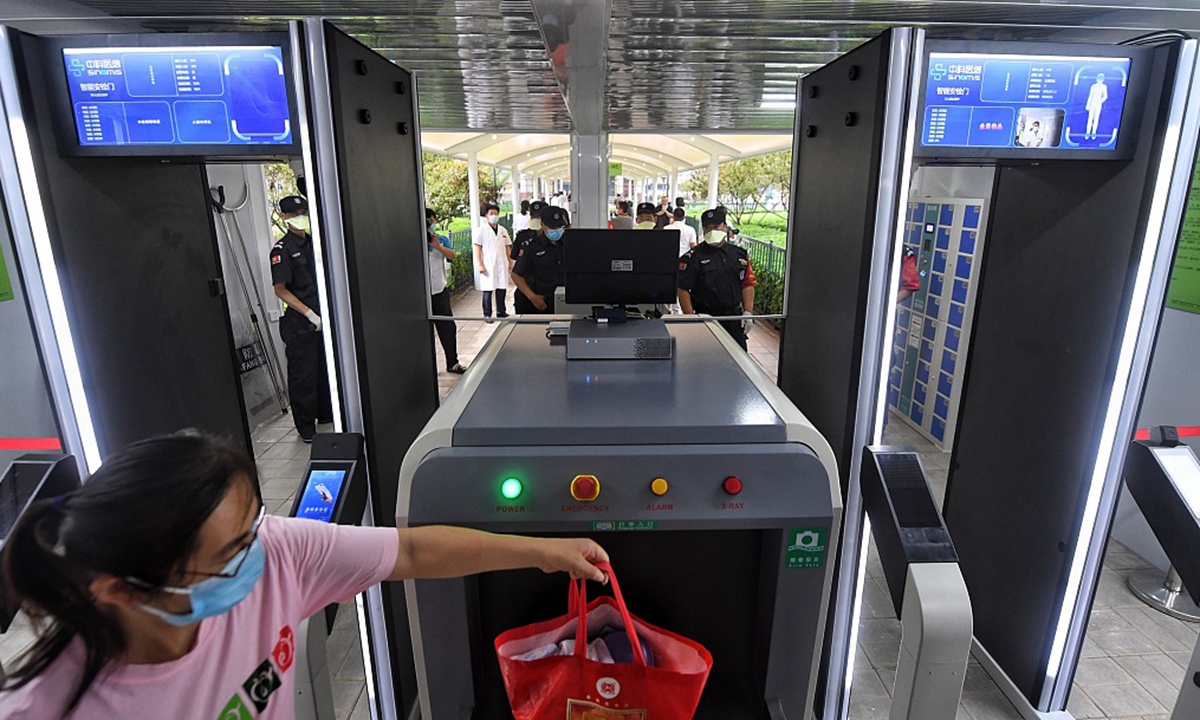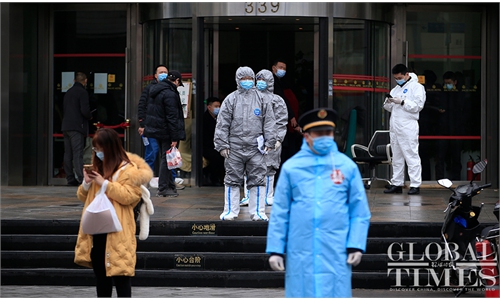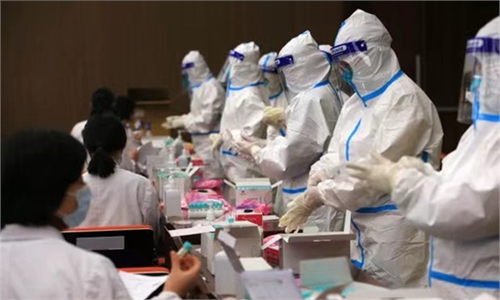
Photo:VCG
More than 200 hospitals in Beijing have installed security systems in response to an alarming number of disputes that have led to violence against doctors.
A total of 237 hospitals in China’s capital have stipulated security checks for people entering hospital lobbies, a staff member from the Beijing Municipal Health Commission (BMHC) told the Global Times on Monday. The list of prohibited items in hospitals was drawn up jointly by the BMHC and Beijing Municipal Public Security Bureau on Thursday.
Flammable and explosive materials, restricted items such as alcohol, fruit knives and sticks are on the prohibited list.
“We installed our security check system last year. Thousands of prohibited items were confiscated every month at the very beginning, but the number has come down to about one hundred in recent months,” Peng Mingqiang, vice president of the China-Japan Friendship Hospital said in an interview with CCTV.
Peng said the hospital keeps the restricted items and gives them back to the owners after they’re discharged from the hospital.
A total of 231 Beijing hospitals are also equipped with one-button alarm devices to prevent medical disputes from spiraling into violent incidents.
These measures came after a series of attacks on doctors in the past few years.
In 2020, Tao Yong, an eye doctor at Beijing Chaoyang Hospital, was attacked by one of his former patients surnamed Cui who cut and injured Tao’s left hand. In 2019, Yang Wen, a doctor at the Civil Aviation General Hospital in Beijing, was stabbed in the neck by a patient’s family member. Yang later died from the injury.
The Global Times noticed that special anti-knife-stab white coats are available on Chinese e-commerce platform Taobao, which have gained hundreds of comments from the buyers.
“It makes feel safe when I’m on my night shift in hospital,” read one comment.
Peng Xizhe, director of the Fudan University Center for Population and Development Policy Studies, told the Global Times on Monday that the measures taken by the hospitals can help prevent emergencies from happening.
“Just like the security staff and the police officers we often see in front of the kindergartens, these measures serve as a precaution. They cannot be seen as a way to solve the strained relationships between doctors and the patients,” Peng added. “Efforts from different parties are needed to bring the relationship of the two back to normal.”
In addition, 86 Beijing hospitals have been equipped with facial recognition systems to identify people who have been involved with medical disputes against doctors and those who have scalped appointment registration tickets, media reports said.


